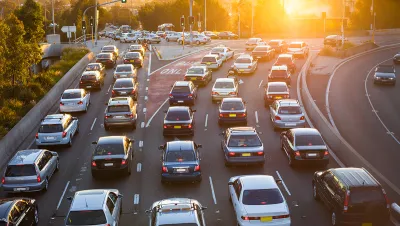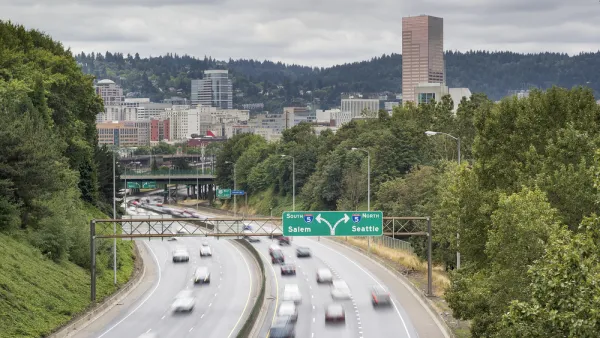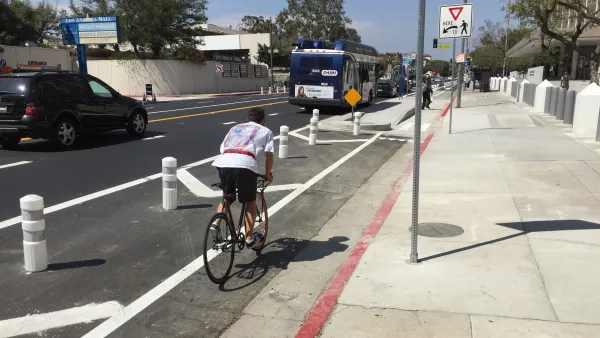A new report stresses the importance of international cooperation on low-carbon development.

The New Climate Economy recently issued a working paper outlining the economic benefits of carbon-saving investment in a rapidly urbanizing world. The report provides a cost-benefit analysis of investment in three primary areas: energy efficiency for buildings, a robust transportation system, and improved waste management. "The finding upends the notion that it is too expensive to do anything about climate change – or that such efforts would make little real difference," writes Suzanne Goldenberg.
The lowest-hanging fruit, according to the report, is transportation. Investing in public transit and improving vehicle fuel efficiency can have net benefits even for cities facing the highest political and economic barriers. "Most cities face significant indirect costs and real structural obstacles to making strategic long-term investments, given their short-term political cycles and limited legal/fiscal powers. Fast-growing cities in the developing world face additional challenges, as population growth compounds existing service and infrastructure deficits." However, the costs of doing nothing are substantial. A 2009 transportation research study estimated congestion costs in Beijing to be as high as 15 percent of GDP.
With the next UN conference on climate change scheduled for November, the report calls on world leaders to cooperate to develop best practices, share knowledge and coordinate policy that aid cities, which are the primary agents of change. There is not a one-size-fits-all prescription, as costs and benefits will vary by city, but the report emphasizes the effects that planning have on mitigating or exacerbating carbon pollution. "For example, despite similar wealth levels and population sizes, Atlanta’s carbon footprint is more than five times higher than Barcelona’s due to past transport infrastructure and planning decisions," the paper states.
The recommendation offered is this: "The Global Commission on the Economy and Climate therefore recommends that all cities commit to developing and implementing low-carbon urban development strategies by 2020, using where possible the framework of the Compact of Mayors, prioritising policies and investments in public, non-motorised and low-emission transport, building efficiency, renewable energy and efficient waste management."
FULL STORY: Climate-smart cities could save the world $22tn, say economists

Analysis: Cybertruck Fatality Rate Far Exceeds That of Ford Pinto
The Tesla Cybertruck was recalled seven times last year.

National Parks Layoffs Will Cause Communities to Lose Billions
Thousands of essential park workers were laid off this week, just before the busy spring break season.

Retro-silient?: America’s First “Eco-burb,” The Woodlands Turns 50
A master-planned community north of Houston offers lessons on green infrastructure and resilient design, but falls short of its founder’s lofty affordability and walkability goals.

Test News Post 1
This is a summary

Analysis: Cybertruck Fatality Rate Far Exceeds That of Ford Pinto
The Tesla Cybertruck was recalled seven times last year.

Test News Headline 46
Test for the image on the front page.
Urban Design for Planners 1: Software Tools
This six-course series explores essential urban design concepts using open source software and equips planners with the tools they need to participate fully in the urban design process.
Planning for Universal Design
Learn the tools for implementing Universal Design in planning regulations.
EMC Planning Group, Inc.
Planetizen
Planetizen
Mpact (formerly Rail~Volution)
Great Falls Development Authority, Inc.
HUDs Office of Policy Development and Research
NYU Wagner Graduate School of Public Service




























